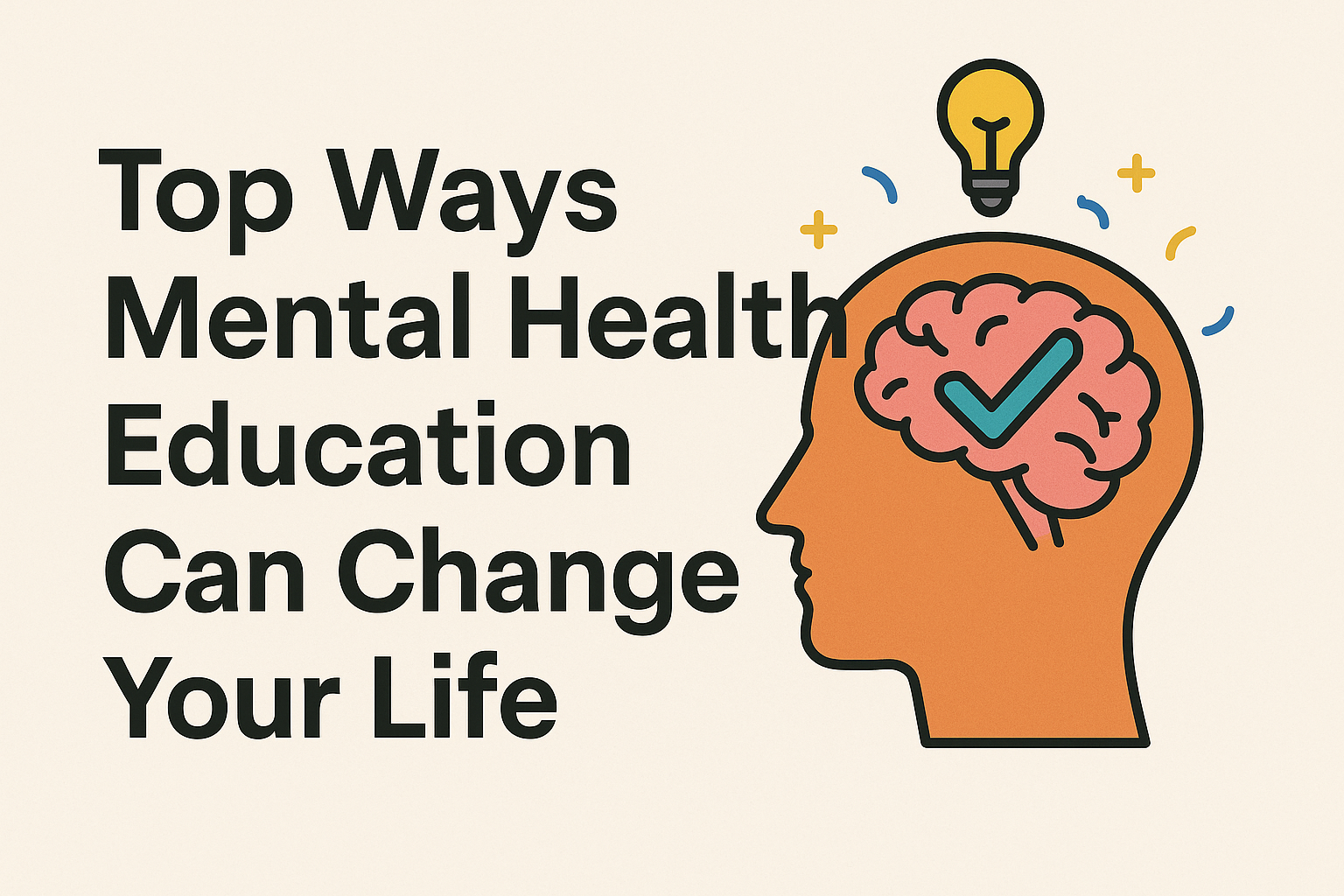In today’s fast-paced and hyperconnected world, mental health has become just as crucial as physical well-being. Yet, many still lack the tools and knowledge to recognize and manage mental health challenges effectively. Mental health education fills that gap. It’s more than just awareness—it’s a transformative force that can improve lives in profound, measurable ways. Whether you’re a student, a professional, a parent, or a leader, understanding mental health can lead to greater resilience, stronger relationships, and improved overall quality of life.
In this article, we explore the top ways mental health education can change your life, backed by research and real-world impact.
1. Empowers You to Understand Yourself Better
Mental health education provides valuable insights into your emotions, thoughts, and behaviors. Understanding concepts like anxiety, depression, emotional regulation, and cognitive distortions can help you identify what you’re feeling—and why. This level of self-awareness empowers you to take control of your mental state, make healthier choices, and recognize early warning signs before a situation escalates.
2. Improves Decision-Making and Cognitive Performance
Studies show that mental well-being is directly linked to cognitive performance. Education on stress management, mindfulness, and emotional regulation can enhance your ability to think clearly, make rational decisions, and maintain focus. This is especially important in high-pressure environments like work or academia.
People who understand how to manage their mental health tend to perform better in their careers, adapt faster to change, and respond to challenges with confidence.
3. Boosts Your Relationships and Social Connections
Mental health education fosters empathy, active listening, and conflict resolution—skills essential for maintaining strong personal and professional relationships. When you understand how mental health affects behavior, you become more compassionate and patient toward others.
This knowledge is particularly beneficial in leadership, parenting, teaching, and customer-facing roles where interpersonal dynamics are critical.
4. Enhances Your Physical Health
There is a well-established connection between mental and physical health. Chronic stress, anxiety, and depression can lead to physical symptoms such as fatigue, high blood pressure, digestive issues, and weakened immunity. Mental health education teaches coping strategies that reduce stress and promote physical wellness.
By learning how to manage mental strain, you indirectly reduce your risk for various chronic illnesses.
5. Reduces the Stigma Around Mental Illness
One of the most powerful outcomes of mental health education is the reduction of stigma. When individuals are educated about the causes, symptoms, and treatments of mental health disorders, they are more likely to seek help and support others in doing the same.
This cultural shift can lead to earlier interventions, better treatment outcomes, and a more inclusive society where mental health is treated with the same seriousness as physical health.
6. Helps You Build Resilience and Coping Skills
Life comes with its fair share of setbacks—job loss, grief, trauma, burnout. Mental health education equips you with the resilience to navigate these challenges without being overwhelmed. You learn how to respond rather than react, how to recover faster, and how to grow through adversity.
Resilience isn’t a fixed trait—it’s a skill you can develop. Mental health education provides the foundation for that development.
7. Improves Financial Health and Career Outcomes
Mental well-being is closely tied to financial decision-making. Poor mental health can lead to impulsive spending, burnout, job instability, and reduced earning potential. In contrast, individuals who understand and prioritize their mental health are more likely to manage stress, remain productive, and pursue long-term financial goals with clarity.
Employers increasingly value mental wellness in the workplace, with many offering mental health benefits and resources. Being educated on these topics can make you a more attractive job candidate or leader.
8. Supports Long-Term Personal Development
Mental health education promotes continuous self-improvement. Whether you’re working on building healthier habits, enhancing your communication skills, or becoming more emotionally intelligent, understanding your mental landscape is essential.
You begin to view challenges as opportunities for growth and embrace lifelong learning as a tool for transformation.
9. Prepares You to Support Others Effectively
Once you’re equipped with mental health knowledge, you can extend that support to friends, family members, colleagues, or students who may be struggling. You don’t need to be a therapist to make a difference—just being educated can help you recognize signs of distress, encourage professional help, and offer meaningful support.
This is especially impactful in parenting, teaching, HR, coaching, and leadership roles.
10. Leads to a More Fulfilling, Balanced Life
Ultimately, mental health education helps you live a richer, more fulfilling life. You develop the tools to handle stress, build meaningful relationships, and align your life with your values. It doesn’t just help you survive—it helps you thrive.
A mentally healthy individual tends to be more present, more compassionate, and more purpose-driven. Education makes that possible.
Final Thoughts
Mental health education is not just for those diagnosed with mental health conditions—it’s for everyone. Whether you’re seeking personal growth, career advancement, stronger relationships, or just a more peaceful mind, understanding mental health can be a game-changer.
In a world that often emphasizes external success, mental health education reminds us that true success starts from within.






